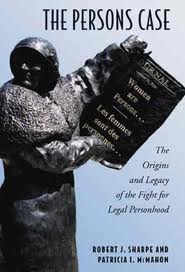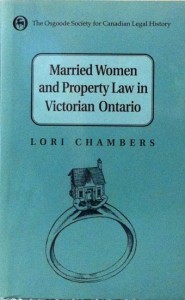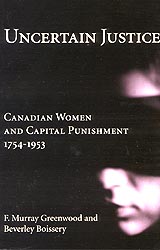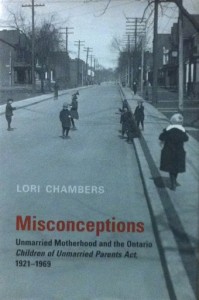Search This Blog
Tuesday, March 28, 2017
Nominations sought for Peter Oliver Prize for published student writing
The Osgoode Society is seeking nominations for the Peter Oliver Prize in Canadian Legal History.
The Peter Oliver Prize in Canadian Legal History was established by the Society in 2006 in honour of Professor Peter Oliver, the Society's founding editor-in-chief. The prize is awarded annually for published work (journal article, book chapter, book) in Canadian legal history written by a student.
Students in any discipline at any stage of their careers are eligible. The Society takes a broad view of legal history, one that includes work in socio-legal history, legal culture, etc., as well as work on the history of legal institutions, legal personnel, and substantive law.
Students may self-nominate their published work, and faculty members are also encouraged to nominate student work of which they are aware. Those nominating their own work should send a copy of it to the Society.
The deadline for nominations for the 2017 Prize, to be awarded for work published in 2016, is April 30, 2017.
Please send nominations to Professor Jim Phillips, Editor-in-Chief, Osgoode Society for Canadian Legal History, Osgoode Hall, 130 Queen Street West, Toronto ON M5H 2N6, or by email to j.phillips@utoronto.ca.
Tuesday, March 21, 2017
Thompson, On the Side of the Angels: Canada and the United Nations Commission on Human Rights
 New from UBC press, On the Side of the Angels: Canada and the United Nations Commission on Human Rights, by Andrew S. Thompson.
New from UBC press, On the Side of the Angels: Canada and the United Nations Commission on Human Rights, by Andrew S. Thompson.Here's what the publisher has to say:
When it comes to upholding human rights both at home and abroad, many Canadians would like to believe that we have always been "on the side of the angels." This book tells the story of Canada’s contributions -- both good and bad -- to the development and advancement of international human rights law at the Commission on Human Rights (CHR) from its creation in 1946 to its dissolution in 2006.
The CHR gave Canada the opportunity to forge a reputation as a human rights leader, while simultaneously advancing international laws and reforms that served its strategic interests as well as those of its allies. This book scrutinizes this reputation by examining Canada’s involvement in a number of contentious human rights issues -- political, civil, racial, women’s, Indigenous, and, in particular, the response to mass human rights violations. It finds that Canada’s record was mixed, its priorities motivated by a variety of considerations, both domestic and international.
An in-depth historical overview of six decades of Canadian engagement within the UN human rights system, On The Side of the Angels offers new insights into the nuances, complexities, and contradictions of Canada’s human rights policies. It also reveals that, despite its limitations, the international human rights law established at the UN offers the best hope of a world in which all citizens are able to enjoy a dignified existence.
Monday, March 20, 2017
Schneiderman, Canadian Constitutional Culture: A Genealogical Account on SSRN
David Schneiderman of the U of T Faculty of Law has posted
Canadian Constitutional Culture: A Genealogical Account on SSRN. The essay will appear in the Oxford Handbook of the Canadian Constitution (ed. by Nathalie Des Rosiers, Patrick Macklem,and Peter Oliver, Forthcoming).
Abstract:
How might one explain Canadian constitutional practices that have produced outcomes that are, within limits, heterogeneous and pluralistic? The chapter inquires into this question by tapping into constitutional culture, referring to dominant understandings of the fundamental norms that guide relations between citizens and states and between institutions of the state. Contemporary constitutional culture, it is argued, is partly the product of choices made in the past by imperial and early Canadian authorities. Taking a genealogical approach to Canadian constitutional culture, the chapter examines three episodes in Canada’s constitutional past that help to frame discussions about the constitutional present. Each illustrates the difficulty of governing those who are different; of aspiring to homogeneity while necessitating some heterogeneity in practice. They are representative samples of the waves of accommodation and assimilation that have been recurring features in Canada’s constitutional story and illustrative of the basic elements that make up Canadian constitutional culture.
CFP: Law in Native North America (deadline March 25)
From Elizabeth Rule, via H-Law:
I'm organizing a panel for the upcoming ASLH conference (Oct. 26-29, 2017; Las Vegas, Nevada) around the theme of Law in Native North America. This panel will be open to legal histories from all parts of North America, placing in conversation the transnationality of settler colonialism and indigeneity, with the history of law and the nation state. I am looking for both paper presenters, as well as a chair-commentator.
Those interested should send a 300-word paper abstract, CV, and the title of the paper. For interested in the chair-commentators position, please send a statement indicating your interest in this role. Please submit these materials to elizabeth_rule@brown.edu by Saturday, March 25. Those selected will be notified by March 27. Thank you!
Elizabeth Rule
PhD Candidate, Brown University
Thursday, March 9, 2017
New from UTP: Kealey, Spying on Canadians
Available June 2017:

Award winning author Gregory S. Kealey’s study of Canada’s security and intelligence community before the end of World War II depicts a nation caught up in the Red Scare in the aftermath of the Bolshevik Revolution and tangled up with the imperial interests of first the United Kingdom and then the United States.
SPYING ON CANADIANS: THE ROYAL CANADIAN MOUNTED POLICE SECURITY SERVICE AND THE ORIGINS OF THE LONG COLD WAR
| By Gregory S. Kealey |

Award winning author Gregory S. Kealey’s study of Canada’s security and intelligence community before the end of World War II depicts a nation caught up in the Red Scare in the aftermath of the Bolshevik Revolution and tangled up with the imperial interests of first the United Kingdom and then the United States.
Spying on Canadians brings together over twenty five years of research and writing about political policing in Canada. Through itse use of the Dominion Police and later the RCMP, Canada repressed the labour movement and the political left in defense of capital. The collection focuses on three themes; the nineteenth-century roots of political policing in Canada, the development of a national security system in the twentieth-century, and the ongoing challenges associated with research in this area owing to state secrecy and the inadequacies of access to information legislation. This timely collection alerts all Canadians to the need for the vigilant defence of civil liberties and human rights in the face of the ever increasing intrusion of the state into our private lives in the name of countersubversion and counterterrorism.
Wednesday, March 8, 2017
Some legal history for international women's day?
Looking for something to celebrate International Women's Day? Some good books on women and the law are published by the Osgoode Society. Visit our membership page to join and receive our member's book for 2017, A Biography of Claire L’Heureux-Dubé by Constance Backhouse. You can also purchase books from our back catalogue, like these!




h/t Trish McMahon
Subscribe to:
Posts (Atom)

